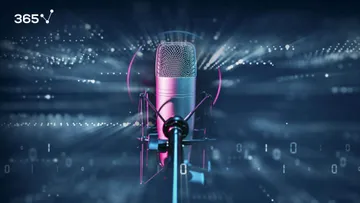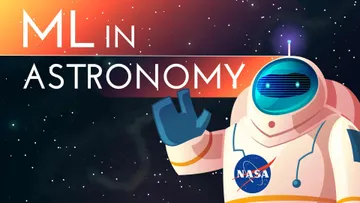Have you ever wondered if everything you hear about AI is true? Could AI really take over all jobs, or is it sentient and capable of feeling emotions?
As Artificial Intelligence (AI) continues to revolutionize industries and everyday life, numerous misconceptions about AI persist. Understanding the truth behind these AI myths is essential for leveraging its potential effectively.
In this article, we'll debunk common AI myths about job replacement, AI's emotional capabilities, data requirements, and the necessity of a Ph.D. We'll also address AI's bias, exclusivity to big companies, performance compared to humans, and need for human oversight.
By clarifying these misconceptions about AI, you'll gain a clearer understanding of what AI can and cannot do, along with some fun facts about AI that highlight its true potential.
Table of Contents
- Understanding AI and Its Latest Advancements
- AI Myths Debunked
- Impact on the Job Market
- Embracing AI: The Path Forward
- FAQs
Understanding AI and Its Latest Advancements
Artificial Intelligence is the simulation of human intelligence in machines programmed to think and learn. Recent advancements include natural language processing, image recognition, and predictive analytics.
Technologies like OpenAI’s GPT-3 and other generative AI tools have demonstrated remarkable capabilities in generating human-like text and assisting in various tasks.
New AI innovations appear every day, so it’s not surprising that we increasingly come across news that can seem questionable. Let’s get into some of these AI myths and debunk them with real data.
AI Myths Debunked
AI Will Take Over All Jobs
Contrary to popular belief, AI myths about job displacement are often exaggerated. A study by the World Economic Forum in 2020 estimated that AI will create 97 million new jobs by 2025 while displacing 85 million jobs. This results in a net gain of 12 million jobs.
This is confirmed in their 2023 report. They note that AI is expected to significantly disrupt the labor market, causing job displacement in some sectors but also creating new opportunities in others. Ultimately, AI is anticipated to have a net positive impact on employment.
Sources: World Economic Forum Report 2020, World Economic Forum Report 2023
AI is Sentient and Can Feel Emotions
One common artificial intelligence myth is that AI is sentient and can feel emotions. AI operates based on complex algorithms and large datasets, allowing it to perform tasks like natural language processing, image recognition, and predictive analytics. However, AI lacks consciousness, emotions, and self-awareness.
For instance, GPT-3, an advanced language model developed by OpenAI, uses a transformer architecture comprising 175 billion parameters. This architecture processes text by breaking it into tokens and using attention mechanisms to understand the context and generate human-like responses.
Despite its sophisticated text generation capabilities, GPT-3 does not understand or feel emotions. It merely analyzes patterns in the data to simulate human-language interactions.
Sources: GPT-3 Architecture Overview, Understanding GPT-3
AI Can Understand and Work with Any Data
The idea AI can understand and work with any data is another questionable AI fact. AI systems require high-quality, well-organized data to function accurately. According to a study by MIT, poor data quality can cost companies 15-25% of their revenue due to inaccuracies and inefficiencies.
In facial recognition models, inaccuracies in training data can cause error rates to spike as high as 84%. Effective AI implementation depends on clean, structured data and continuous updates to adapt to new information.
To make sure that their training is effective, analysts report that more than 80% of AI project time is dedicated to tasks such as data cleansing, normalization, and validation.
Sources: MIT Sloan Review on Data Quality, Unite.AI on Adversarial Image Attacks, DZone on Data Labeling in AI
You Need a PhD to Understand AI
Among the misconceptions about AI is the belief that you need a PhD to understand it. Our research found that employers are increasingly seeking candidates with master’s and bachelor’s degrees for positions such as data scientists and machine learning engineers. There are a number of online master’s degree options which are more flexible and affordable than traditional universities.
But practical experience and skills in programming languages (e.g., Python, R) and AI frameworks (e.g., TensorFlow, PyTorch) are often valued over degrees. For a faster, self-paced option, there are many comprehensive online courses available that provide accessible training, covering essential AI concepts and tools.
These courses—such as those we offer at 365 Data Science—enable learners to gain practical experience and enhance their employability without needing a doctoral degree. These interesting facts about the AI job market show that anyone can learn AI with the right resources.
Sources: 365 Data Science on Data Scientist Job Market, 365 Data Science on Machine Learning Engineer Skills
AI is Only for Big Companies
It's a common myth about AI that only big companies can afford to use it. AI adoption is not limited to large corporations. Small and medium-sized enterprises (SMEs) are also leveraging AI to enhance their operations.
Cloud-based AI services from platforms like AWS and Microsoft Azure have democratized access to advanced AI tools, eliminating the need for significant upfront investments.
A McKinsey report found that over one-third of companies have integrated AI into at least one business function. Additionally, a Conference Board survey revealed that 56% of U.S. workers use generative AI tools at work.
Sources: Conference Board on AI Tools Usage, McKinsey State of AI Report 2023
AI is Completely Unbiased
Another AI myth is that AI is completely unbiased. These systems can inherit biases from their training data, leading to inequitable outcomes. For example, MIT and Stanford found that commercial facial recognition systems had error rates of 34.7% for dark-skinned women compared to 0.8% for light-skinned men, highlighting significant racial and gender biases.
Amazon's AI recruitment tool, trained on male-dominated resumes, discriminated against women by penalizing resumes with terms related to women's activities or education. Addressing these biases requires careful data handling, development of fair algorithms, and continuous monitoring to ensure equitable outcomes.
Sources: Reuters on Amazon AI Bias, MIT Study on AI Bias
AI Will Outperform Humans in All Areas
The idea that AI will outperform humans in all areas is one of the most common artificial intelligence myths. AI excels in specific tasks but lacks the general intelligence and adaptability of humans. For instance, AI systems can master structured games like chess but cannot handle complex, real-world tasks.
In creative fields, AI can generate art, but studies show mixed preferences, with many valuing the human experience and emotional depth in human-created art. In finance, AI provides data-driven insights but struggles with unprecedented events.
Additionally, AI chatbots can handle simple queries but often fail in complex, emotionally charged interactions requiring empathy. While AI is powerful in specific areas, it cannot match human intelligence's adaptability, necessitating human oversight and creativity in decision-making.
Sources: McKinsey on AI Potential and Limitations, Cognitive Research Journal on AI in Creative Fields, APA on AI in Various Fields
AI Can Be Used Without Human Oversight
A significant misconception about AI is that it can be used without human oversight. In fact, AI systems require continuous human oversight to function correctly and ethically.
In healthcare, misinterpretation by diagnostic AI can result in severe misdiagnoses and inappropriate treatments. This was evident in AI models for COVID-19 detection, which saw a 50% drop in accuracy on external data, highlighting the risks of ‘shortcuts’ in AI learning processes that can lead to errors in medical diagnosis.
Shadow AI—the use of unsanctioned AI tools within organizations—exacerbates these risks. For example, 15% of employees input company data into tools like ChatGPT without IT oversight, raising data privacy and security concerns. This can lead to compliance issues, such as Samsung banning employee use of generative AI tools after sensitive data leaks.
Sources: TechXplore on Medical AI Shortcuts, LayerX Security on GenAI Data Exposure Risk, TeamViewer on Shadow AI
Impact on the Job Market
AI is shaking up the job market in a big way. As we saw in our AI facts, there's a booming demand for skills in data science, machine learning, and AI development. This surge is opening up fresh roles and opportunities across industries, like AI and machine learning engineers.
We're also seeing the rise of positions such as AI auditors and AI ethicists. These roles are crucial for managing security risks and ensuring that AI is used ethically, maintaining the trustworthiness of AI systems as their influence spreads.
Companies are also becoming keen on upskilling their current workforce to keep pace with AI technologies. This involves training employees in AI-related skills and integrating AI into existing workflows to boost productivity and efficiency.
AI democratization allows a wider range of businesses, including SMEs, to tap into AI advancements. This is creating new opportunities beyond the traditional tech giants.
In short, AI is transforming the job market by creating new roles, upskilling employees, and expanding opportunities across sectors. To stay competitive, individuals and organizations need to embrace continuous learning and adapt to leverage AI's potential for driving innovation and growth.
Embracing AI: The Path Forward
Understanding and debunking AI myths is crucial for leveraging its potential effectively. To stay ahead in this evolving landscape, we need to stay informed and continuously adapt to new developments.
365 Data Science offers a comprehensive range of courses, projects, resources, and certifications in AI and data science. We’ve designed our platform to equip you with the knowledge and skills needed to thrive in the AI-driven future. From foundational courses that introduce you to the basics of AI to advanced projects that allow you to apply what you've learned in real-world scenarios, 365 Data Science has something for everyone.
By investing in your education and skills, you can position yourself at the forefront of AI innovation and stay competitive in the job market. Don't let AI myths about the job market hold you back—embrace these innovations and start learning today.
FAQs








